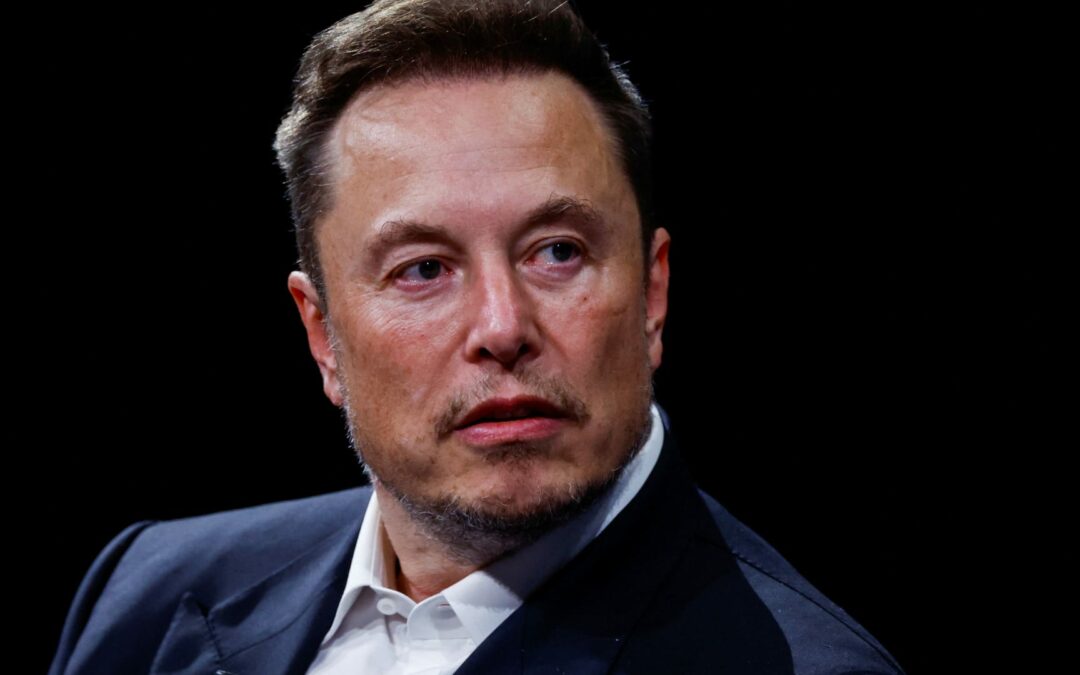Elon Musk, chief executive officer of SpaceX and Tesla and owner of Twitter, at the Viva Technology conference in Paris, France, June 16, 2023.
Gonzalo Fuentes | Reuters
Billionaire Elon Musk’s social media platform quietly waged a lobbying campaign to derail an online content moderation bill in California and is now suing the state, alleging First Amendment violations, according to disclosure reports and people familiar with the effort.
Musk took control of X Corp., known at the time as Twitter, in October in a deal worth over $40 billion. In the months preceding Musk’s purchase, Twitter lobbyists privately met with state lawmakers, including Democratic Assemblyman Jesse Gabriel, who wrote the original bill, to voice their concerns about the proposed legislation, according to the records and a recent interview with the bill’s author.
“Did they [the company] share concerns about this? 100%. But it was a very different tone and tenor than the lawsuit. They certainly had concerns but also shared their views on how to make the legislation more workable,” Gabriel said.
Gabriel said the company’s change in tactics comes down to one reason: Musk’s purchase. “The interesting thing for me is what has changed — the acquisition of the company and the new leadership,” Gabriel said.
A former Twitter executive told CNBC that Musk’s move to turn to the courts to fight what he sees as First Amendment battles could be the start of a trend in which the social media giant looks to the legal system to fight legislation it doesn’t like. This person declined to be named in order to speak freely and to avoid retaliation from Musk or other X executives.
The California bill, signed into law last year by Gov. Gavin Newsom, requires social media companies to post their content moderation policies as well as submit a report to the state twice a year on how their content rules address hate speech, racism, disinformation and harassment. X is suing California alleging the law violates First Amendment rights. The state has said it’s reviewing the complaint and plans to respond in court.
X’s move to go from lobbying policymakers to suing the state is a notable shift for the company. Prior to the Musk acquisition, Twitter was not known for spending millions of dollars to influence legislators, or for using hardball legal challenges to aggressively oppose certain laws, according to lobbying records, a court records search and people briefed on the matter.
Twitter, before the name change to X earlier this year, was never in the top tier of lobbying spending by Big Tech, according to the disclosure reports.
This year, however, X has spent more than $500,000 combined on federal and state lobbying, according to data from the nonpartisan OpenSecrets. They spent more than $80,000 on lobbying California state lawmakers since 2021, with a partial focus on Gabriel’s bill, according to the public records.
A search through the federal court database shows the social media company was never a plaintiff challenging state laws in the years prior to the recent lawsuit against California.
The company did file a legal complaint against the U.S. Department of Homeland Security in 2017 to try to stop the federal government from unmasking an anonymous Twitter account that was critical of the department, according to a court filing. Twitter, a day after filing the complaint that year, voluntarily dismissed the legal matter after speaking with the Department of Justice, according to another filing.
Musk himself often acts as an informal lobbyist, posting on X his political stances and going to Washington to meet with lawmakers about policy initiatives. On Wednesday, he was among a group of tech executives invited to Capitol Hill to discuss artificial intelligence behind closed doors with senators.
An X spokesman did not respond to a request for comment. An email to X’s press mailbox was answered by an automated response: “Busy now, please check back later.”
Musk’s X is involved with at least two other lawsuits.
X is suing a nonprofit over allegations that some of the group’s previous research on the platform’s lack of combating hate speech was derived from unscrupulous methods, including the use of illegally scraped Twitter data. The nonprofit has denied it used data-scraping tools to conduct its research. X is also facing 2,200 arbitration cases that were unveiled in a recent court filing after Musk’s acquisition.
Musk has also publicly threatened to sue the Anti-Defamation League for what he believes is a pressure campaign on advertisers to walk away from working with X. The ADL has denied wrongdoing.
The ADL was a supporter of the content moderation bill that X is now suing California over.








